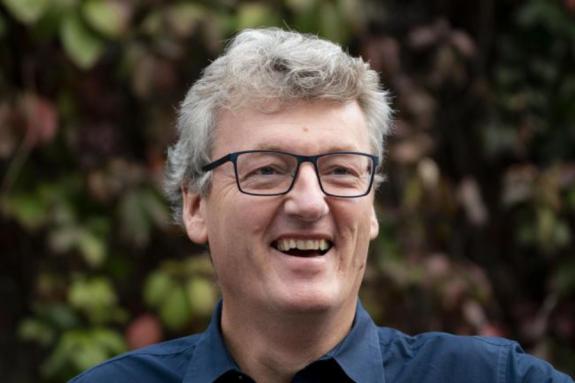In a groundbreaking announcement, a distinguished Nobel Prize-winning Scottish chemist, Professor David MacMillan, has boldly predicted that effective pharmaceutical treatments for Alzheimer’s disease could be commercially available within the remarkably short span of just five years. This optimistic outlook offers a beacon of hope for millions worldwide grappling with this debilitating neurological condition, marking a potential turning point in the global fight against neurodegenerative disorders.
Professor MacMillan, a luminary in the field now based at Princeton University, expressed profound confidence in his forecast, stating unequivocally, “I would bet my house that within five years we have marketed drugs for Alzheimer’s.” His conviction stems from the unprecedented acceleration and remarkable breakthroughs observed within neurological research, which he describes as nothing short of “phenomenal.” This rapid pace of discovery is significantly shortening the typical drug development pipeline, bringing innovative solutions closer to reality.
The professor’s personal connection to Alzheimer’s disease deeply informs his dedication to this area, as both his father and aunt bravely battled the condition. This personal experience undoubtedly fuels his relentless pursuit of scientific advancement and his fervent belief in the imminent availability of therapeutic options. His unique perspective combines profound scientific expertise with a deeply empathetic understanding of the disease’s devastating impact.
MacMillan’s esteemed reputation in the scientific community was solidified in 2021 when he was jointly awarded the prestigious Nobel Prize in Chemistry alongside Professor Benjamin List. Their monumental achievement centered on the development of asymmetric organocatalysis, a revolutionary method for constructing molecules. This pioneering work has fundamentally transformed the field of organic chemistry, providing more efficient and environmentally friendly ways to synthesize crucial compounds, including those vital for advanced drug development.
The potential emergence of marketed Alzheimer’s drugs within such a tight timeframe represents a seismic shift in medical science. For decades, the development of effective treatments has been hampered by the complexity of the brain and the multifaceted nature of the disease. Professor MacMillan’s prediction, therefore, signifies not just an individual’s belief but a reflection of the collective progress and refined strategies now being employed in neuroscience research globally.
Integrating these new drug development methodologies and a deeper understanding of neural pathways, scientists are now better equipped to tackle the challenges posed by complex diseases like Alzheimer’s. The collaborative nature of modern neuroscience research and advancements in imaging and diagnostic techniques are paving the way for targeted interventions that were once unimaginable. This accelerated progress is a testament to persistent scientific inquiry and significant investment in understanding brain health.
Despite the immense demands of his groundbreaking work and the global recognition that followed his Nobel Prize, Professor MacMillan maintains strong ties to his roots. Although he has no immediate plans to relocate from Princeton, he frequently visits Scotland to connect with family and close friends. His ongoing commitment to scientific discovery, coupled with his personal history, underscores the urgent and deeply personal drive behind the hopeful medical breakthrough he envisions.
This bold scientific prediction from a Nobel Prize winner injects a much-needed sense of optimism into the ongoing battle against Alzheimer’s disease. It reinforces the idea that dedicated research and innovative approaches can indeed yield transformative results, potentially alleviating immense suffering and improving the quality of life for countless individuals and their families in the very near future. The world watches with bated breath for this highly anticipated development.






Leave a Reply